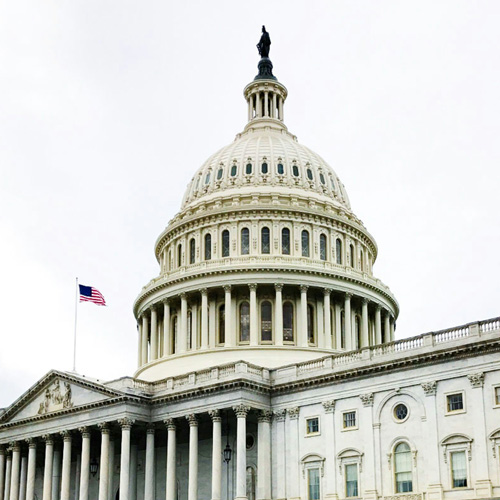Unlike 2020, which brought the Illinois Trust Code, impacting the administration of trusts under Illinois law, and the SECURE Act, which substantially altered the distribution rules for IRAs and other retirement accounts (both as described in our law update last year), 2021 has not yet ushered in substantial estate and trust law changes.
Other than a modest inflation adjustment to the federal estate, gift, and generation-skipping transfer (“GST”) tax exemptions, the primary federal and Illinois transfer tax exemptions and exclusions remain the same, as reflected on the following chart:
Federal Estate, Gift, and GST Tax Exemptions
2020
$11,580,000
2021
$11,700,000
Illinois Estate Tax Exemption
2020
$4,000,000
2021
$4,000,000
Federal Gift Tax Annual Exclusion
2020
$15,000
2021
$15,000
Before the election, speculation abounded that the election would result in quick, dramatic, and potentially retroactive tax law changes impacting those with higher incomes and/or wealth. Candidate Biden’s tax platform included a significant reduction in the federal estate and GST tax exemption, an increase in the federal estate tax rate, and elimination (subject to a modest exemption) of basis step-ups at death. In addition, the November Illinois ballot included a proposed constitutional amendment to permit a progressive state income tax, and there were some proposals, contingent on the amendment passing, to couple a significant increase in marginal Illinois income tax rates on higher income taxpayers with the elimination of the separate Illinois estate tax.
We know now that the election resulted in the failure of the Illinois constitutional amendment, and, at the federal level, in a blue turn rather than a massive blue wave, leaving a muddier legislative picture. Under these circumstances and with the enormous challenges and looming legislative battles facing the country and Illinois, we would be surprised if there were dramatic and rapid estate, gift, and GST tax exemption changes made retroactive to January 1, 2021 or another date prior to the date of legislative enactment.
Nevertheless, with federal and state deficits growing dramatically, there will be an inescapable need for revenue and a strong push for a significant portion of that revenue to come from higher-income and higher-wealth taxpayers. Under current federal law, the federal estate, gift, and GST tax exemptions are scheduled to continue increasing annually for inflation through 2025 and then be reduced by half in 2026. Now that the political winds have shifted at the federal level, it is possible that we will ultimately see legislation that reduces the exemptions or otherwise materially changes the transfer tax rules well before 2026.
We will continue to monitor federal and state legislative developments and will be ready to help our clients plan for any changes in applicable tax and trust law.
This update has been prepared for general informational purposes only and should not be construed as legal advice on any specific facts or circumstances.
With the current situation in mind, we continue to recommend thoughtful and proactive planning for those who potentially have federal or state estate tax exposure and, depending on the situation, encourage the following:
- Make annual exclusion ($15,000) gifts, do so early in the calendar year, and consider direct gifts of tuition and medical expenses.
- For large personal and charitable gifts, start with flexible, simple-to-administer techniques such as spousal limited access trusts (“SLATs”), descendants’ dynasty trusts, and donor-advised funds for charitable gifts.
- Consider more sophisticated techniques that offer extra bang for the buck when interest rates are low, such as grantor retained annuity trusts (“GRATs”), sales to defective grantor trusts, and charitable lead trusts (“CLTs”).
- For those individuals who have used their full lifetime gift tax exemption through 2020, gift the additional $120,000 from the 2021 lifetime gift tax exemption inflation adjustment noted in the chart.
- If and when serious tax legislation negotiations occur, consult with estate planning and financial advisors and consider gifts or other actions that might be advantageous in light of any proposed legislation.
- Given the frailties of life that COVID-19 has exposed, make sure that all of the non-tax aspects of one’s estate plan (including proper asset titling and beneficiary designations, organization of important personal and financial information, and communication of end-of-life wishes) have been addressed.
STAY IN THE LOOP
Subscribe to our free newsletter.
For the estate planning community, 2024 feels like the calm before the storm...
As with federal and Illinois tax and trust law, recent law changes related to special needs planning have been modest but important...
A federal court ruling and subsequent appeal have created uncertainty about the constitutionality of the Corporate Transparency Act, the federal statute that came into effect in 2024 with new reporting requirements for privately-held LLCs, corporations, and partnerships. While the appeal proceeds, the clock is ticking for such entities to either comply with the statute’s reporting requirements or potentially face stiff penalties...
This February marked the 25th anniversary of our practice. That milestone fills us with gratitude – for our incredible team, for the outstanding professional advisors with whom we have collaborated, and especially for the caring, thoughtful, and interesting individuals and families who have placed their trust in us...






